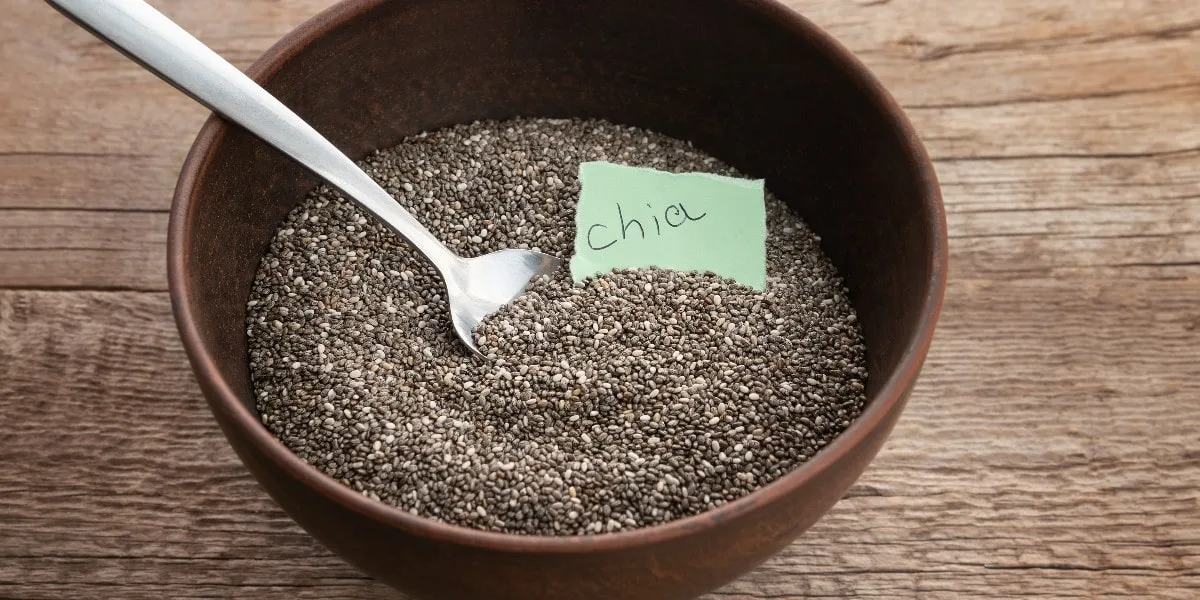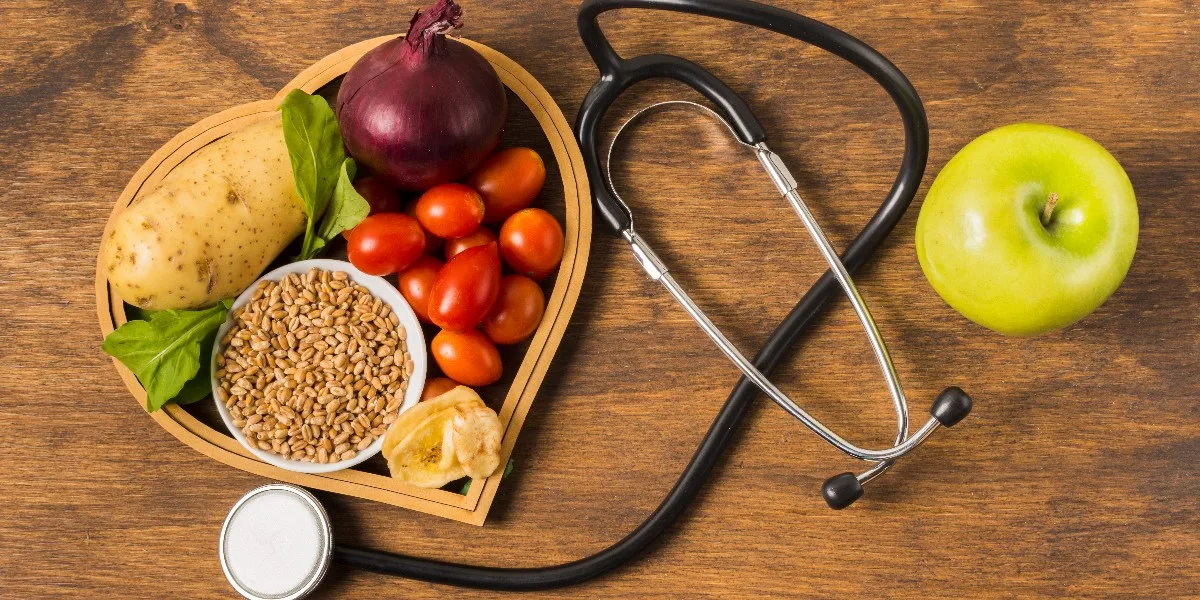Chia seeds, small yet powerfully nutritious with lots of health benefits, originate from the Salvia hispanica plant, a member of the mint family primarily grown in Mexico and Guatemala. These seeds have been a staple in the diets of ancient civilizations, notably the Aztecs and Mayans, who recognized their vital role in providing energy and endurance. The word “chia” itself is derived from the Mayan language, meaning “strength,” indicating the high regard in which these seeds were held for their energy-boosting properties. Here’s a comprehensive overview focusing on their nutritional value, health benefits, and usage in diet:
Nutritional Value
Chia seeds are renowned for their impressive nutritional profile, offering a wide range of vitamins, minerals, and other essential nutrients in a small package. Here is a detailed breakdown of the nutritional composition of chia seeds per 100 grams:
Macronutrients
- Calories: Approximately 486 kcal
- Protein: Around 16.5 grams, making them a good plant-based protein source.
- Fats: Approximately 30.7 grams, with a significant portion consisting of omega-3 fatty acids (about 17.8 grams of alpha-linolenic acid).
- Carbohydrates: About 42.1 grams, predominantly in the form of dietary fiber (34.4 grams), making chia seeds an excellent fiber source. The net digestible carbohydrates are relatively low due to the high fiber content.
- Dietary Fiber: Chia seeds are extremely high in fiber, which aids in digestion and promotes a feeling of fullness.
- Sugars: Minimal, around 0.8 grams, making them a low-sugar option.
Vitamins
Chia seeds contain several important vitamins, though in smaller quantities, including:
- Vitamin B1 (Thiamine): Essential for energy metabolism.
- Vitamin B3 (Niacin): Supports the nervous system, digestive system, and skin health.
- Other B vitamins in trace amounts.
Minerals
Chia seeds are rich in several minerals crucial for bone health, metabolism, and overall well-being:
- Calcium: Approximately 631 mg, contributing significantly to bone health and the functioning of various cellular processes.
- Magnesium: Around 335 mg, important for muscle and nerve function, blood glucose control, and bone health.
- Phosphorus: Approximately 860 mg, crucial for bone and tooth development, protein synthesis for cell and tissue growth, maintenance, and repair.
- Potassium: Roughly 407 mg, vital for blood pressure regulation and proper heart function.
- Iron: About 7.7 mg, crucial for the formation of hemoglobin and oxygen transport in the blood.
- Zinc: Around 4.6 mg, important for immune function, wound healing, DNA synthesis, and cell division.
- Copper: Around 0.9 mg, vital for red blood cell production and the upkeep of healthy bones, blood vessels, nerves, and immune system functionality.
- Manganese: About 2.7 mg, involved in the metabolism of amino acids, cholesterol, glucose, and carbohydrates.
Other Nutrients
- Omega-3 fatty acids (ALA): With around 17.8 grams of alpha-linolenic acid, chia seeds are one of the richest plant-based sources of omega-3 fatty acids, beneficial for heart health.
Antioxidants
Chia seeds also contain various antioxidants :
- chlorogenic acid
- caffeic acid
- myricetin
- quercetin
- kaempferol
these antioxidants may help protect the body’s cells from free radicals, reducing inflammation and protecting against chronic diseases.
Health Benefits
Chia seeds have been extensively studied for their potential impacts on various aspects of health, including cardiovascular health, weight management, diabetes control, and more. Here’s a detailed look at some key health benefits supported by scientific research:
1. Cardiovascular Health
- Omega-3 Fatty Acids: Chia seeds are rich in alpha-linolenic acid (ALA), a type of omega-3 fatty acid that has been linked to a reduced risk of cardiovascular diseases. Research suggests that ALA can lower blood triglyceride levels, reduce inflammation, and improve cholesterol profiles, thereby decreasing the risk of heart disease.
- Blood Pressure: Studies have shown that consuming chia seeds can lead to reductions in blood pressure in individuals with hypertension, which is a significant risk factor for heart disease.
2. Weight Management and Satiety
- Fiber Content: The high fiber content in chia seeds can absorb water and expand in the stomach, leading to increased satiety and reduced food intake. A study published in the European Journal of Clinical Nutrition found that the consumption of chia seeds promotes satiety and reduces short-term food intake, which can be beneficial for weight management.
- Protein: Chia seeds are also a good source of protein, which has been associated with reductions in appetite and subsequent intake.
3. Blood Sugar Regulation
- Glycemic Control: The fiber in chia seeds can slow the absorption of sugar into the bloodstream, helping to stabilize blood sugar levels after meals. This effect can be particularly beneficial for individuals with diabetes. A study in the “British Journal of Nutrition” highlighted that chia seeds can improve blood sugar control in individuals with type 2 diabetes.
4. Bone Health
- Mineral Content: Chia seeds are a good source of calcium, magnesium, and phosphorus, which are essential minerals for bone health. Regular consumption can contribute to maintaining bone mineral density and preventing osteoporosis. The calcium content is particularly noteworthy for those who do not consume dairy products, making chia seeds an excellent alternative calcium source.
5. Inflammatory and Oxidative Stress Reduction
- Antioxidants: Chia seeds contain antioxidants such as quercetin, kaempferol, and chlorogenic acid. These compounds can neutralize free radicals, reducing oxidative stress and inflammation in the body. Chronic inflammation and oxidative stress are linked to several chronic diseases, including cancer, heart disease, and type 2 diabetes, suggesting that chia seeds could have a protective effect.
6. Digestive Health
- Dietary Fiber: Beyond aiding in satiety, the fiber in chia seeds supports the growth of beneficial gut bacteria, contributing to gut health and promoting regular bowel movements. This can help prevent constipation and maintain a healthy digestive tract.
The recommended daily intake of chia seeds is about 1 to 2 tablespoons (approximately 15 to 30 grams). This amount provides a substantial portion of the daily recommended intake of dietary fiber, omega-3 fatty acids, and various minerals such as calcium, magnesium, and phosphorus, contributing to a balanced diet without exceeding caloric needs.
Considerations:
- Digestive Tolerance: If you are not used to a high-fiber diet, it’s advisable to start with a smaller amount and gradually increase it to avoid gastrointestinal discomfort. Chia seeds absorb water and expand in the stomach, which can cause bloating and gas in some individuals.
- Hydration: Due to their high fiber content and ability to absorb water, it’s important to stay well-hydrated when consuming chia seeds. Drink plenty of water throughout the day to facilitate digestion and absorption.
- Caloric Content: While chia seeds are nutrient-dense, they are also relatively high in calories (about 486 calories per 100 grams), so it’s important to incorporate them into your daily caloric intake thoughtfully, especially if you are monitoring your weight.
Usage Tips:
- Soaking: Consider soaking chia seeds before consumption. Soaked chia seeds are easier to digest and the process of soaking can make the nutrients more bioavailable. A common ratio is 1 part chia seeds to 10 parts water, left to soak for about 30 minutes to 2 hours.
- Incorporation into Meals: You can add chia seeds to a variety of dishes, such as shakes, yogurts, oats meal, salad, and baked goods, to boost nutritional content without significantly altering the taste or texture.
Read also : The Truth About Soaking Nuts: Separating Fact from Social Media Fiction
Disclaimer : The information provided on this website/document is not a substitute for professional medical advice, diagnosis, or treatment. If you have any questions or concerns about your health, please consult with a licensed physician or other qualified healthcare provider.
Image by devmaryna on Freepik








